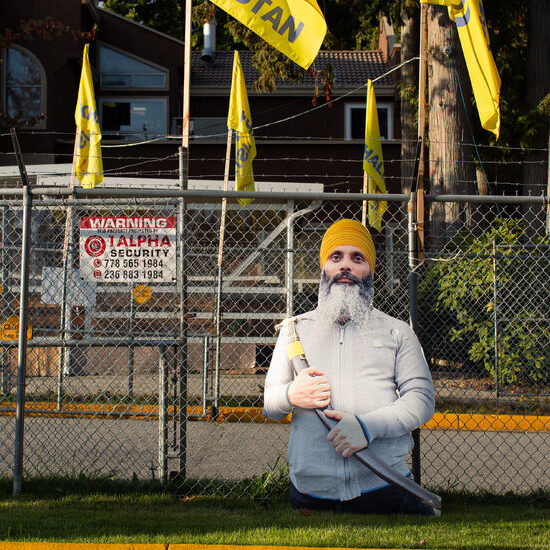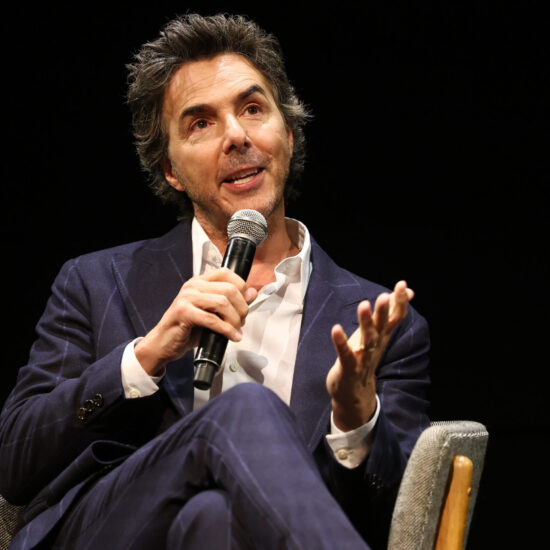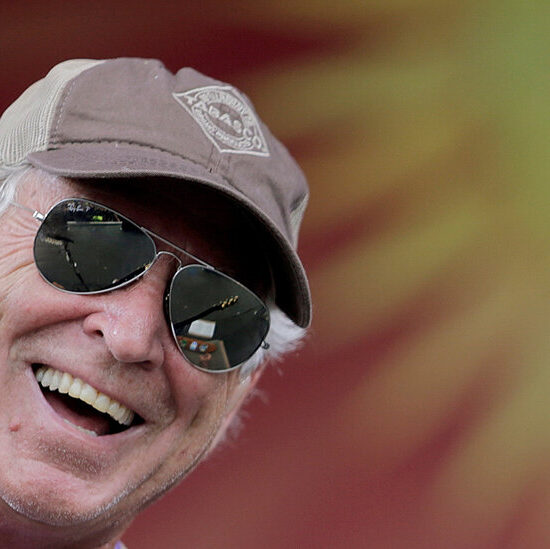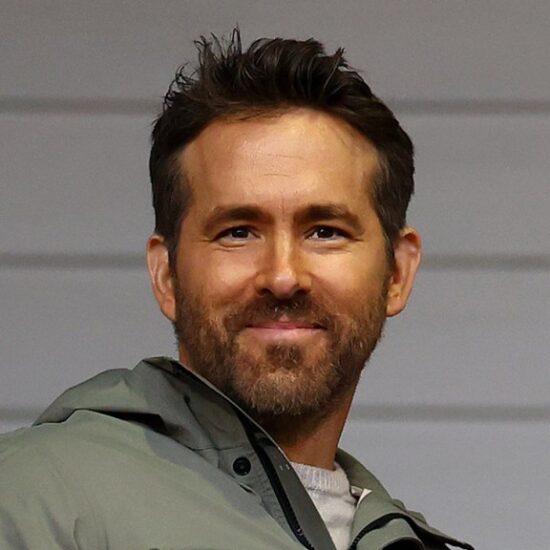
By Bedatri D. Choudhury AND Tom White
Mable Haddock, the founding president and first CEO of the National Black Programming Consortium—now Black Public Media—passed away on July 23. By all accounts, she was a fighter, not just for filmmakers of color to tell their stories, but also for public media to look like the country it aimed to serve. As we mourn the passing of this trailblazer, we also bask in her legacy—at once humbled and proud.
Mable received awards from the Black Women’s Preservation Project, three CEBA Awards, the Leo Award from the Flaherty International Film Seminars, a New York Women in Film Award, a Trailblazer Award from Blackfilm.com, and a leadership award from NAMAC. But her biggest legacy remains the large body of work by filmmakers of color that she nurtured, mentored and inspired.
The following tributes from friends and colleagues bear witness to the dazzling legacy of this amazing woman.
—
Mable was a fierce advocate and defender of Black film and Black filmmakers. She was of slight build but had a larger-than-life presence. She had a powerful voice in the world of independent film. She once told me that her role as the head of Black Public Media was to fight for Black stories and Black storytellers—and that’s exactly what Mable did. She fought for us Black storytellers, and ensured that we had the resources, support, and a safe haven to create and tell our stories. To this day, whenever I am invited to be a panelist to help funders decide which films and filmmakers to fund, I carry Mable’s spirit into the room with me. I fight for other Black filmmakers who are deserving of funding and other support because Mable taught me that Black creatives who are in positions of influence and power ought to do so. She also taught me that we should take a hard stance against funders funding filmmakers who should NOT be telling our stories. I owe that mentality and sense of responsibility to Mable Haddock. She supported me, nurtured me, gave me tough love, held me accountable, showed me the way, and passed the torch. She was fearless.
May Mable Haddock rest well.
Regi Allen
Editor, Producer
I remember the day Mable Haddock walked into the WOSU-TV conference room in Columbus, Ohio to be interviewed for the position of executive director of the National Black Programming Consortium (NBPC). She was greeted by an unlikely team of Black public television producers who had founded the newly CPB-funded media organization—Rojene Bailey, Ruth Batton Campbell, Edwin Clay, Donald Marbury, Christopher Moore, and me. Mable brought experience in arts administration and grant-making, plus a gleam in her eye that only hinted at the fierce determination that was at the core of her character. Selecting her to realize our vision of building and sustaining an organization that would develop, foster, distribute and promote programming “that stemmed from and was reflective of the Black experience” was the best decision we ever made. Mable took the helm of NBPC in 1980, quickly establishing distribution streams for Black programming and, within a year, convened nearly a hundred filmmakers, media professionals, programmers, and thought leaders from across the world at NBPC’s Inaugural Annual Meeting in 1981.
Under Mable’s leadership, NBPC became the first American institution to center the work of Black independent creators, while continuing its support of public television station-based initiatives. Despite public television pushback, Mable insisted and found ways to celebrate and introduce audiences to the work of filmmakers from Africa and throughout the African diaspora.
With early staff members Shirley Bowen and Jacqueline Tshaka, she established the annual Prized Pieces Awards, providing a national forum to honor creators whose work had far too often been ignored. It was Mable Haddock who solidified a collaboration with The National Urban League that resulted in the first PBS prime-time public affairs town hall, The State of Black America 1984, co-presented by NBPC and Detroit Public Television. The program would mark a new beginning for the visibility of a long lineage of significant stories and projects that received NBPC support at a time when they needed it most.
Mable Haddock was a true force with unflinching candor, a wicked sense of humor and a nurturing soul. She was the force that sustained the organization through four years of defunding by CPB. No obstacle would deter her, as she forged networks across the national and international media landscape with people and organizations committed to a diverse and equitable ecosystem. She was the force that shepherded the organization’s move from Columbus to Harlem, paving the way for the future of what Black Public Media would become. Although health issues prompted her retirement from the inaugural executive director post after 25 years, she remained the guiding light of the organization and would continue her work in cultivating and engaging audiences. I know that Mable Haddock’s legacy will endure—through the family and extended family she nurtured, through the stewards and friends of Black Public Media, and through the lives and work of the many media creators, she has mentored and supported.
Juanita Anderson
Co-Founder, National Black Programming Consortium (now Black Public Media)
Area Head, Media Arts and Studies, Department of Communication, Wayne State University
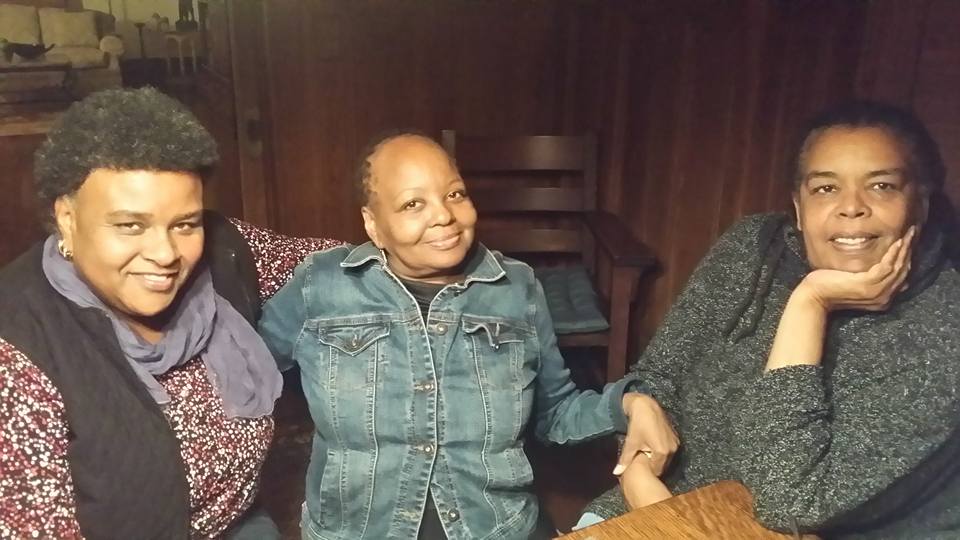
Mable Haddock was sharp as a tack, witty, fierce and exactly who you wanted in your corner when the chips were down. I met Mable during her tenure as director of the National Black Programming Consortium, and our work intersected at Firelight Media, where she was a generous and enthusiastic collaborator. Despite navigating health challenges, or perhaps because of them, she brought a sense of moral clarity and urgency to her work that inspired and motivated me to do the same. She was not only a champion of filmmakers, but of women of color in the field, who she worked hard to encourage and connect. Many of us would not be where we are without Mable’s hand guiding us, or her voice advocating for us behind the scenes. That, in my mind, is her greatest legacy. She was a towering figure in our field, a tree whose roots ran deep and whose impact will be felt for generations. May she rise in power.
Sonya Childress
Co-Director, Color Congress
Until I was hired at National Black Programming Consortium (NBPC) in 2001, the primary Black female influences in my life were from my family: my mother, Pauline; her two sisters; my paternal grandmother; my great aunt; my big sister; and my female cousins. I was surrounded by a bevy of smart, beautiful and loving Black women. But none of them were connected to my professional work as an arts administrator. Then I met Mable Haddock.
I first met Mable in 1996, during a business trip to Columbus, Ohio, where NBPC was based. Five years later, I was ending a contract job and interviewing at various organizations, including NBPC. Luckily, I advanced to an interview with Mable. A few days after that interview, I was offered and accepted the job. Mable Haddock was the first Black woman I’d ever worked for. And, as a Black woman, having the privilege to be mentored by someone like Mable—one of the smartest and boldest women in the documentary field at that time—was like hitting the jackpot.
Mable exemplified what it meant to be authentically Black and female in a professional space. She wasn’t afraid to speak truth to power, both verbally and in her writings. She was kind and forgiving, but could be a little salty if rubbed the wrong way. She always reminded me to not “take things personally” in this business. She encouraged me to take risks, but to make sure I did the proper advance preparation. She knew how to relax after working hard to reach a specific goal. Her stories either made you laugh ’til your belly ached, or made you want to grab a pad to take notes. For me, she was an invaluable mentor and I am deeply committed to carrying her legacy of leadership and mentorship forward.
Mable Haddock, rest in power, my dear friend, as you join the ancestors: Jacquie Jones, Christian Ugbode, Michelle Materre, and Leanne Ferrer.
Leslie Fields Cruz
Executive Director, Black Public Media
I met Mable almost 40 years ago when I began to attend meetings for public media and saw what leadership looked like when she spoke. She was brilliant and fierce and called out foolishness before anyone else. All I knew then was I did not want to be part of the conspiracy of silence. Speaking truth, that was Mable before anyone else. She shone bright the path of promise for all of us.
Sally Jo Fifer
CEO, ITVS
Mable is responsible for funding several of my early films, including I AM A MAN: Black Masculinity in America, Hip-Hop: Beyond Beats and Rhymes, Barack & Curtis, and Soul Food Junkies. In fact, Mable gave me my first big grant to finish I AM A MAN.
I had the privilege to be in her inner circle. She was a mentor, godmother, sister, and friend. I can’t even begin to tell how her impact changed so many of us, just that she came with the truth and support that only a woman touched by god and the ancestors could bring. She was amazing at a party. Prized Pieces changed my life. We’ll be forever grateful for what you created in Ohio. National Black Programming Consortium for life, my love. Godspeed. I’ll see you later.
Byron Hurt
Filmmaker
Mable Haddock was a risk-taker; she saw the potential in filmmakers even when they might not have seen it in themselves.
In a field that can be challenging, Mable was a beacon of light to filmmakers of color. Hundreds of filmmakers, either directly or indirectly, launched their film careers because Mable believed in them. She was brilliant and honest and had a wicked sense of humor. We were so blessed to have had her in our lives as a mentor, colleague and friend.
Sharon La Cruise
Filmmaker
Mable Haddock was determined to change the look, sound and feel of public media, and she contributed so much to making that happen. She had a vision of a public media where the vitality of young Black people and other much too invisible people of color would dazzle the screens with their brilliance, passions, anger and truths.
When Mable came into public media back in the 1970s, it was much too pastel, too East Coast Ivy League, too British. Mable had a vision of local and national public television reflecting the vibrant world that she grew up in, its warmth, its dynamism, and its often-ignored wisdom. She went to work to change that and did.
In Columbus, Ohio, with the support of the underspoken jazz musician and Black station manager at WOSU, Ed Clay, and others, Mable created the National Black Programming Consortium. She searched nationwide for the many talented young producers and directors making films about African American history, culture and life—people like Julie Dash, Juanita Anderson, Orlando Bagwell and Stanley Nelson, just to name a few. The list of award-winning producers she brought into public media is long, but equally significant is the much longer list of emerging producers who continue to persevere.
Mable invited and welcomed hundreds of producers into the world of public broadcasting. This was no easy feat; she was always up against naysayers at all levels—public TV station managers and national leaders, who thought her meager budget should be cut or eliminated. But Mable fought back and plowed forward with determination, along with her characteristic gestures of a roll of her eyes and a chuckle of amazement. She pushed for support to help create the Independent Television Service (ITVS) and to provide ongoing legislative support for the National Black Programming Consortium, and the other culturally specific groups that now comprise the National Multicultural Alliance. She worked collaboratively to form this alliance, which pooled money and funded ventures such as the PBS series Matters of Race, in 2003. Most importantly, they grew to work together, thanks to Mable’s generous spirit, her skillful negotiations, and her willingness to listen.
In each city where she worked, she paid attention to the community and focused on connecting the life of Black communities to public media. In Columbus, Ohio, she created a community-based competition and festival that brought national media personalities to the city. In Pittsburgh and New York, she helped create events that further threw open the doors of public media.
Mable was focused and hardworking, but she also took the time to listen carefully, to understand, to nurture those seeking to create new works and to build relationships. She reminded us all that there was joy in this. Mable’s grantmaking provided over $6 million to the media community, but her gifts to public media went far beyond money. She inspired the work of the Firelight Media Lab, of which she was a founding director, and which continues her legacy of inspiring new talent. Her contribution to the world of media in the United States and its global connections will go on beyond her life, creating a very special diverse community of media producers that is priceless.
Jennifer Lawson
Former Executive Vice President of National Programming, PBS
While her name had been floating around the NYC Black documentary community for years, I only met the illustrious Ms. Haddock a few years ago. Esteemed colleagues Leslie Fields-Cruz and Denise Greene tapped me to be program manager for the Jacquie Jones Memorial Scholarship Fund, a one-time funding opportunity for documentary filmmakers of color. Named after another superstar champion of all things Black and independent, Mable presided over the final deliberation session where funds would be awarded in Jacquie’s name. While the room was filled with wise and thoughtful funding experts, there was quiet yet universal deference to Mable’s careful and measured input. I was impressed with her presence, wisdom and humor, as well as her respect for the members of the funding panel. Her deepest well of care, however, was reserved for the funding applicants—Mable gave their applications her complete attention, weighing in on the strengths of their projects with her wealth of knowledge and decades of experience as to what makes a film work. She came from a space of deep respect for these content creators, combined with the conviction that these makers had to tell our stories with accuracy and responsibility. Mable was, in fact, a staunch guardian of our collective legacy.
I went on to have some notable encounters with Mable over the last few years, angling to sit next to her during dinners, shared car rides or in BPM events. I treasured her advice and insights into the independent film landscape, specifically the programming space that I was just beginning to navigate, and appreciated her generous listening, support, and advocacy. If there is a special place in hell for women who don’t help other women, then there must also be a special place in the great beyond for brilliant and generous sisters who share their wisdom with love and grace. Mable has taken her well-earned seat at that table, and while we will miss her, she left her indelible mark on all of us who were fortunate enough to have known her. With reverence and gratitude, I wish her a peaceful transition.
Karen McMullen
Feature Film Programmer
Mable was a visionary, warm and creative leader. Her impact on the documentary landscape and on public media will be felt for generations. In addition to being grateful in general to have worked in the field while she was in it, I am so appreciative of her support of our work at POV. On a personal level, she was also someone I always enjoyed running into at events over the years. She will be missed.
Justine Nagan
Head of Production, Actual Films
Former Executive Director, American Documentary, Inc/Former POV/America Reframed
Mable Haddock was a soldier in the fight for inclusion in the documentary film industry. In addition to being the founder of Black Public Media, she was the first director of Firelight Media’s Producers Lab, now known as our flagship Documentary Lab, a program that continues to grow and thrive today. She was also a true friend and a constant advocate for my work. She is irreplaceable and she will be missed.
Stanley Nelson
Filmmaker/Co-Founder, Firelight Media and Firelight Films
Mable was one of the visionaries behind the Minority Consortia. Her leadership at Black Public Media, and in fighting to defend diverse participation in public media helped pave the way for the many programs today that are helping our field become more diverse.
Gordon Quinn
Co-Founder/Executive Director, Kartemquin Films
Mable was a fierce champion, supporter and mentor to me and so many of us. She was an independent film and television trailblazer, in every sense of the word. Our industry owes her a tremendous debt of gratitude for her vision, which changed the media landscape, and created transformative possibilities for Black filmmakers and stories. Her role as leader and administrator may overshadow her storytelling prowess, but if you ever got feedback from Mable, it was always insightful, always on point, and pulled no punches. She weathered storms with dignity, clarity and her razor-sharp wit. Praise from Mable was high praise, indeed, and I always felt respected and valued in all of our interactions. Most of all, Mable made me feel “seen.” I never stopped learning from her, and will forever be grateful to and inspired by her.
Sabrina Schmidt Gordon
Filmmaker
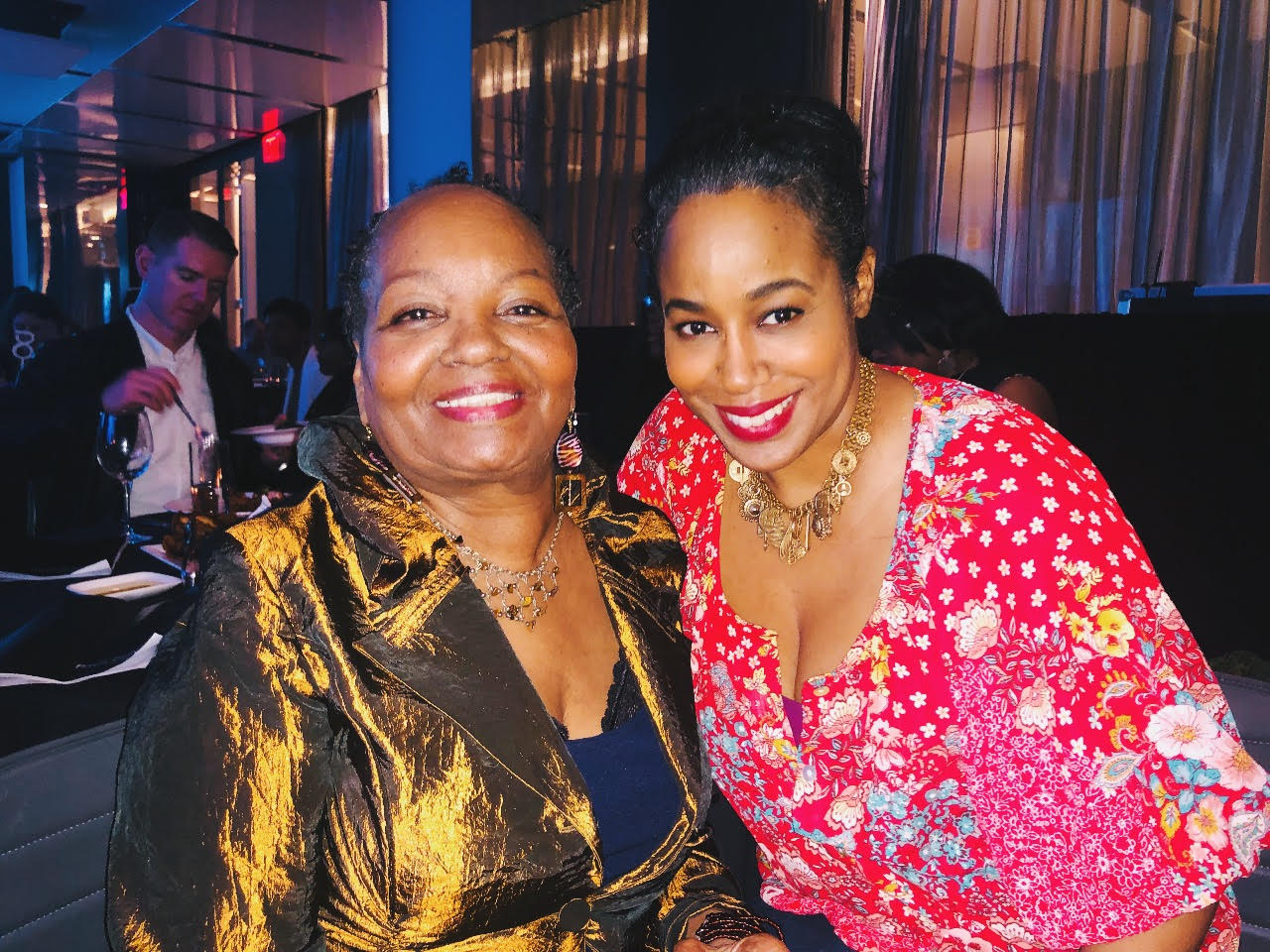
The first time I met Mable was at her home in Harlem, with Orlando Bagwell. Soon after, I edited Malcolm X: Make It Plain, which was funded by NBPC. My first impression of her was, What a kind and genuine force of nature! Over the years she has supported the careers of numerous emerging and veteran filmmakers alike. As a Chinese proverb goes, “One generation plants trees, and another gets the shade.” Mable was a visionary woman warrior who planted forests, and her decades of hard work will be felt for generations to come.
Jean Tsien
Filmmaker
Mable was an extraordinary person and a committed activist and advocate whose work over many decades empowered hundreds of Black filmmakers by creating new opportunities for funding and support, including through her visionary work as a founder of Black Public Media (formerly the National Black Programming Consortia).
Mable was among the first people I met when I left Sundance and began working at ITVS. I remember sitting with her at my second PBS Annual Meeting as she described what was (and was not) happening within public media at the time. She wanted accountability and change, and didn’t hold back in her efforts to achieve it. She called me on the carpet when necessary, and from her I got vital lessons about how we needed to transform public media to represent whole communities and populations of people whose stories were not represented. Yet despite all the hurdles (and there were many), Mable could and would laugh. Loud and often.
My heartfelt condolences to her family and friends and to our colleagues and friends at Black Public Media for your and our collective loss. I know Mable’s legacy will continue to inspire us.
Lois Vossen
Executive Producer, Independent Lens
Mable Haddock was a champion in all senses of the word. She was a truth-teller who would tell you when you got it wrong, and let you know if you got it right. She was a fighter who built what is now Black Public Media from the ground up. When the organization held a gala in her honor almost 20 years ago, the highlight reel of artists whose formative work had been supported by her directly or indirectly was staggering—Julie Dash, Thomas Allen Harris, Charles Burnett, Spike Lee, Youruba Richen, Arthur Jaffa and Shola Lynch, to name but a few. Even a boyish Anthony Mackie and a young Denzel flashed by in that reel of early funded work. More recently, Mable laid the bedrock for the incomparable Firelight Producers Lab alongside Stanley Nelson and Marcia Smith. Mable was a visionary. She knew how to get things started and how to get things done.
Mable also knew how to get the party started. She loved good music and loved to laugh. She was a great storyteller who would uncap a bottle, pour you a drink and begin with, “My Daddy used to say,” or “Mamma and them would always,” somehow in the process unlocking the wisdom of the ages while usually making you bust a gut from laughing. Having known Mable and having experienced both her no-nonsense edge as well as her warmth and generosity, I no longer wonder what it might have been like to have known Ida B. Wells or Madam CJ Walker or even Harriet Tubman. I knew Mable, and I will be forever lifted by that.
Noland Walker
Vice President of Content, ITVS











